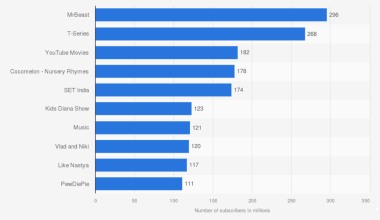In the competitive world of independent music, indie artist need a music manager to help navigate the complexities of the industry. Handling music, promotion, bookings, and finances can be overwhelming. This is where a music manager comes in. They take care of the business side, allowing the artist to focus on their craft. But why exactly do indie artist need a music manager? Let’s dive into the reasons.
What Does a Music Manager Do?
A music manager is essential for any indie artist looking to succeed. Their job is to ensure that the artist’s career is managed efficiently. Here are some key responsibilities that illustrate why indie artist need a music manager:
- Booking Shows: Managers secure gigs and handle negotiations, ensuring the artist gets the best deal possible.
- Marketing and Promotion: They develop and implement marketing strategies, manage social media, and secure media coverage.
- Financial Management: A music manager handles the financial aspects, from budgeting to royalties, ensuring everything is in order.
- Career Guidance: Managers provide strategic advice to help the artist make informed career decisions.
- Networking: They leverage industry connections to create opportunities for the artist, such as collaborations and partnerships.
Why Indie Artist Need a Music Manager
- Focus on Creativity: One of the main reasons artist need a music manager is to free up time for creativity. Managing a music career is demanding, and with a manager, artists can concentrate on what they do best—making music.
- Industry Connections: artist need a music manager because managers have valuable connections within the industry. These relationships can lead to opportunities that might otherwise be inaccessible to the artist.
- Expert Negotiation: Many indie artists are not experienced in contract negotiation. Indie artist need a music manager to ensure that they are getting fair deals and are protected from unfavorable terms.
- Strategic Planning: A manager helps in setting long-term goals and creating a plan to achieve them. Indie artist need a music manager to ensure their career is on the right track and progressing steadily.
- Financial Management: Managing finances can be challenging, especially when dealing with various income streams. Indie artist need a music manager to handle these complexities, ensuring that all financial matters are in order.
How to Choose the Right Music Manager
When artist need a music manager, choosing the right one is crucial. Here are some tips:
- Experience: Look for a manager with a proven track record in the music industry, particularly within your genre.
- Reputation: Research potential managers. Check reviews and talk to other artists to ensure they have a good reputation.
- Communication: Your manager should be someone with whom you can easily communicate and who understands your vision.
- Transparency: A good manager is transparent about their fees and how they handle your money.
- Shared Vision: The manager should share your artistic vision and be as passionate about your success as you are.
The Financial Aspect of Hiring a Music Manager
A common concern when indie artist need a music manager is the cost. Typically, managers take a percentage of the artist’s income, often between 15% and 20%. However, this investment often pays off. With a manager, artists can earn more through better gigs, increased sales, and efficient financial management.
When Should an Indie Artist Hire a Music Manager?
artist need a music manager at different stages of their career. Here are signs that it might be time:
- Overwhelmed with Work: If you’re spending more time on business tasks than making music, it’s time to consider a manager.
- Lack of Industry Knowledge: If navigating the music industry is challenging, a manager can provide the necessary guidance.
- Growth Stagnation: If your career has hit a plateau, a manager can help you move forward.
- Increased Opportunities: If you’re receiving more gig offers, media attention, or label interest, a manager can help you capitalize on these opportunities.
Case Study: How a Music Manager Transformed an Indie Artist’s Career
There are countless examples that demonstrate why artist need a music manager. Take the case of an indie artist struggling to manage their career. They were missing out on opportunities and struggling with financial management. After hiring a music manager, their social media presence improved, they booked better gigs, and their income increased. The artist could finally focus on their music, which led to significant career growth.
Common Misconceptions About Music Managers
Despite the clear advantages, some misconceptions persist about why indie artist need a music manager:
- “I Can’t Afford a Manager”: While managers take a cut of your earnings, they often help you make more money overall. The right manager can significantly increase your income, making their fee worthwhile.
- “A Manager Will Take Over My Career”: A manager’s role is to support your vision, not to control it. Indie artist need a music manager to help them achieve their goals, not to dictate them.
- “Only Big Artists Need Managers”: Even indie artists can benefit from a manager. If you’re serious about your career, a manager can help you grow faster and more effectively.
Do Indie Artist Really Need a Music Manager?
In conclusion, while some indie artists manage their careers independently, there are clear reasons why indie artist need a music manager. A manager brings expertise, connections, and strategic planning that can elevate an artist’s career. Whether you’re just starting or already have a following, the right manager can help you navigate the complexities of the music industry and focus on what you do best—creating music.
Final Thoughts
In the ever-competitive music industry,artist need a music manager to help them stand out. A good manager can open doors, provide valuable guidance, and handle the business aspects, allowing artists to concentrate on their creativity. If you’re ready to take your career to the next level, finding the right music manager could be the most important decision you make.
For further reading, explore these related articles:
For additional resources on music marketing and distribution, visit Deliver My Tune.






